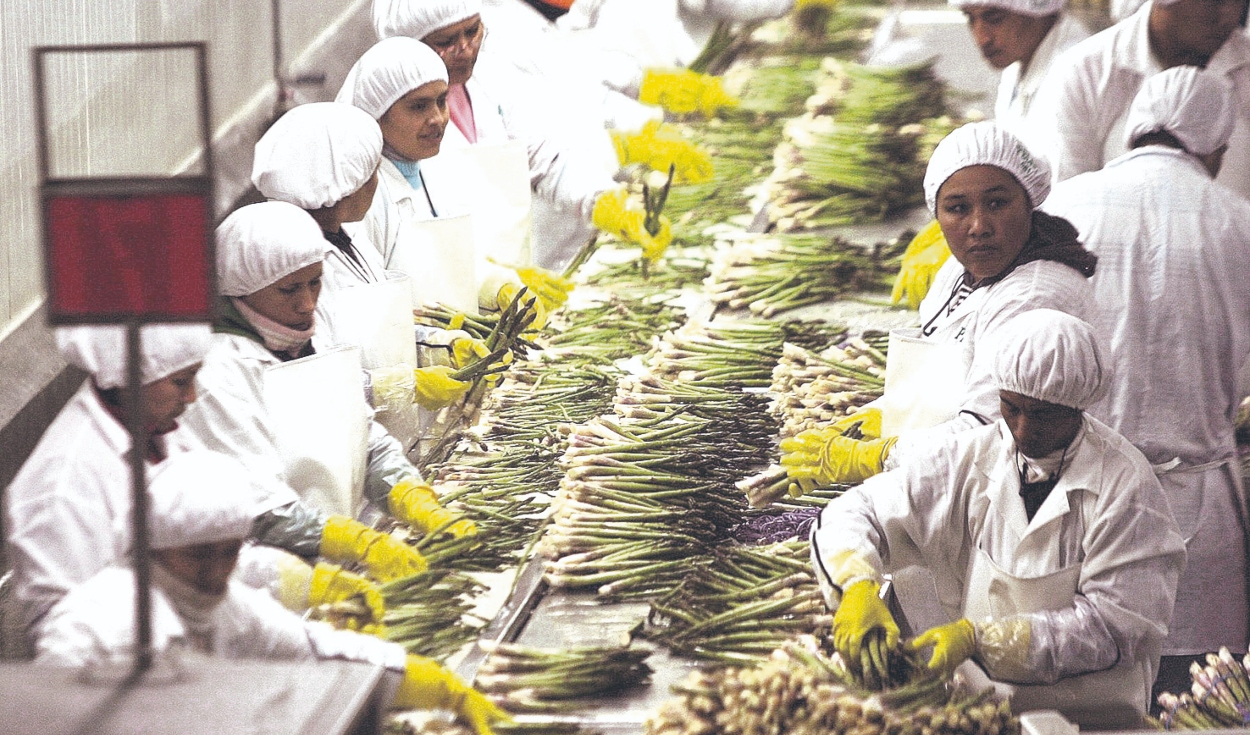
The Ministry of Development and Irrigation (Midagri) has introduced changes to the new Agrarian Law, modified in 2020, which imply a reduction from 29.5% to 15% of the income tax (IR), as part of the list of legislative powers that he will request before Parliament. These benefits will reach, angularly, 18 companies.
These new exemptions for the agro-export industry in Peru come after, in December 2023, the sector’s contribution to Essalud was reduced (6% compared to 9% paid by other industries) and additional tax deductions, which also translate into lower income payments.
The previous scenario? Total agricultural shipments that totaled US$10,545 million in 2023, a growth of 2.9% compared to 2022 (US$10,250 million), according to Midagri. In addition, only ten companies concentrated a fifth of all Peruvian offices, out of a total of 2,730 firms dedicated to the business, according to annualized figures from Mincetur.
The top ten companies are led by Camposol, Virú, Complejo Agroindustrial Beta, Danper Trujillo, Vitapro, Agrícola Cerro Prieto, Sociedad Agrícola Drokasa, Ecosac Agrícola, Machu Picchu Foods and Agrovisión. The crops that performed the best were avocado, blueberries, coffee, grapes, asparagus and mango.
Fernando Cuadros, former vice minister of Employment, considers that it is a “underhanded” relaunch of the Chlimper Law which has been organized “little by little”, but fiscal and with less labor flexibility to avoid new social conflicts.
“The cut in your contributions to Essalud came into effect on January 1. And on top of the fact that they already have additional deductions than any other normal company, they want to reduce their income by half,” he maintains.
Angular benefits
In that sense, Cuadros explains that there are 18 companies that concentrate 50% of all workers in the activity, which is why cutting IR by half will “especially benefit them, above others.”
Cuadros recalls that, when the rule is changed in 2020, a gradual increase in the IR is created, but in the case of mypes the higher rate was only going to apply in a few years.
For the economist José de Echave, The decision of the Peruvian Government is equivocal, in a context of collection at historic lows, which previously led Minister Arista to promise “no more exonerations.”
In this sense, The expert finds it “counterproductive” to redouble exemptions in a country with one of the lowest tax pressures in Latin America (below 15%), and that has a “collapsed State” that cannot meet the health, education and infrastructure needs of the population due to lack of resources.
De Echave also specifies that “tax benefits should not be permanent, but should be temporary.”
“One could understand that an economic activity at the beginning may require help, but we are talking about one that has gained global markets and is consolidated,” he says.
Agricultural exports continue to grow
The production of coffee (3.7%), blueberries (63%), avocado (12.2%), grapes (9%) and cocoa (8.8%) has led the 6.3% growth of agro-exports between 2014 and 2023, according to the BCRP.
Collection closed 2023 with a drop of 12.3%. A total of S/147,246 million entered, almost S/10,530 million less than in 2022. In addition, agricultural GDP fell -2.1%.
Midagri assures that it will respect the Beta Bonus for agribusiness workers.
Source: Larepublica
Alia is a professional author and journalist, working at 247 news agency. She writes on various topics from economy news to general interest pieces, providing readers with relevant and informative content. With years of experience, she brings a unique perspective and in-depth analysis to her work.











